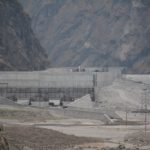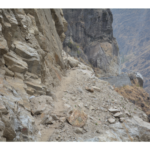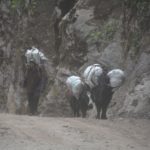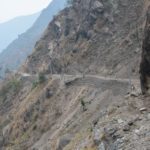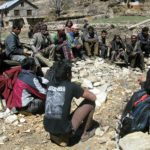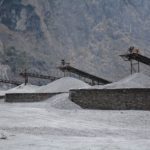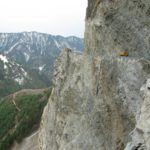Professor of Geography Katharine Rankin is currently co-leading (with Professor of Anthropology Sara Shneiderman, UBC) two major collaborative, interdisciplinary research projects addressing post-disaster, post-conflict dynamics in a rapidly transforming region of South Asia. Infrastructures of Democracy: State Building as Everyday Practice in Nepal’s Agrarian Districts employs comparative ethnographic methods and deliberative public engagement to explore how people enact and participate in ‘democracy’ in contexts of state restructuring. Following the end of a decade-long civil conflict, local institutions emerged as key sites of on-going struggle over democratic futures in Nepal. Much of those struggles are waged around the governance of infrastructure development, in a country characterized by challenging topographies and smallholder agrarian livelihoods. Through a focus on infrastructure governance, the research explores how everyday practices at the sub-national scale constitute state building, and how they enable or constrain transformative social change. ‘Infrastructures of Democracy’ references the contested physical infrastructures (especially the project’s focus on rural roads), as well as the social infrastructures through which governance transpires and aspirations for democracy are pursued. The project is funded by a SSHRC Insight Grant and entails several nested scales of collaboration including peer researchers in research sites and doctoral students in Canada and Nepal—with core research teams based at the University of Toronto and the University of British Columbia in Canada, and at the Martin Chautari Research and Policy Institute in Kathmandu, Nepal. In addition to academic contributions, the project provides policy-relevant analysis of local institutional dynamics and supports processes of public deliberation through community-based research methods, analysis workshops and graphic-format representation.
On April 25, 2015, a 7.9-richter-scale earthquake hit Nepal killing more than 8,800 people, injuring over 23,000, and causing extensive damage to already limited and vulnerable infrastructure. The earthquake and its many aftershocks have placed local governmental institutions under tremendous strain while also prompting a groundswell of local and trans-local support for a massive rebuilding effort. A second project, titled Expertise, Labour and Mobility in Nepal’s Post-Conflict, Post-Disaster Reconstruction, aims to understand the socio-political effects of Nepal’s 2015 earthquakes and post-earthquake reconstruction. Funded by a SSHRC Partnership Development Grant, it builds an international network of scholars, academic institutions, and non-profit organizations focusing on post-earthquake reconstruction and social transformation in Nepal, with strong nodes in Canada, Nepal, and Denmark. The project features three ethnographic and survey research pilots focusing on three domains of expertise critical to post-conflict and post-disaster transformation: construction (engineers, architects, and traditional builders); law (politicians, civil servants, and lawyers); and finance (bankers, corporate investors, and microfinance/cooperative fund managers). It aims to build research capacity, in both Canada and Nepal, to investigate and improve post-disaster reconstruction in mountainous regions. . A website is under development in conjunction with the official start date of the project in September 2017.
- Upper Tamakoshi Hydroelectric dam, construction halted by labor strikes and 2015 earthquake, Dolakha District. April 2016.
- Section of Upper Tamakoshi Highway, damaged by earthquake. Dolakha District. April 2016.
- Human and yak porters, road to Upper Tamakoshi Hydropower dam, Dolakha, Nepal; road closed to vehicular traffic after April 2015 earthquake. April 2016.
- Section of Upper Tamakoshi Highway, damaged by earthquake, Dolakha District. April 2016.
- Road construction users’ group in focus group interview, Jumla District, Nepal. March 2013.
- Karnali Highway, Jumla District, Nepal, en route to remote district, Mugu, which is one of the project research sites. March 2013.
- All photographs by Professor Katharine Rankin
- Gravel for cement, Upper Tamakoshi Hydroelectric dam, construction halted by labor strikes and 2015 earthquake, Dolakha District. April 2016.
- Army construction equipment on Karnali Highway, Jumla District, Nepal. March 2013.
